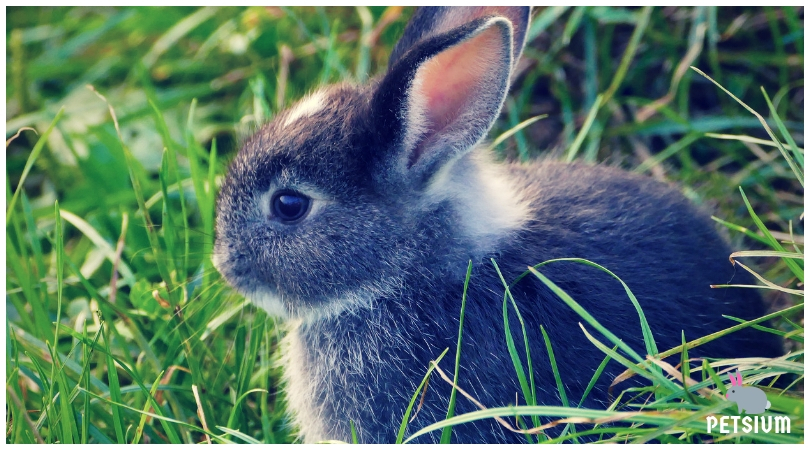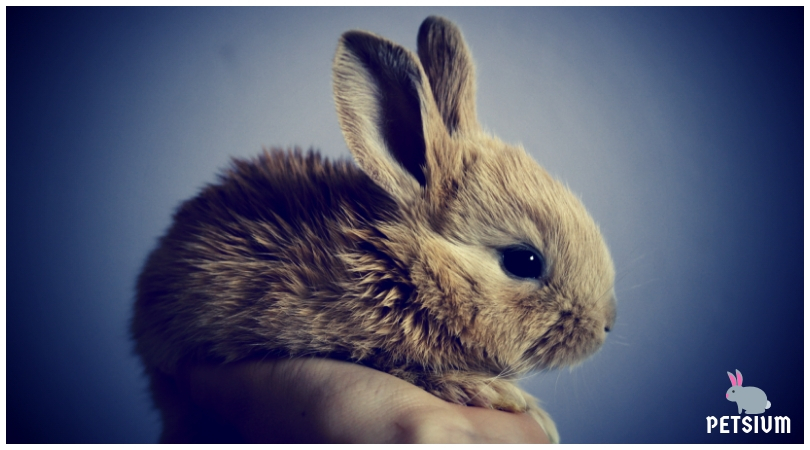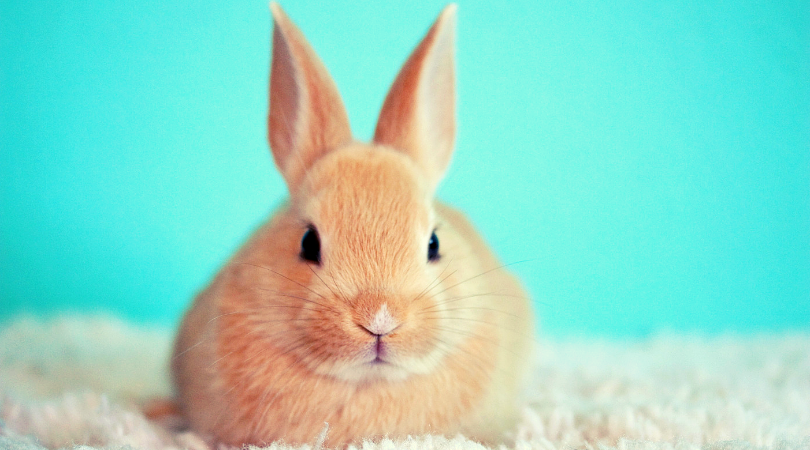Before choosing a rabbit, you should consider exactly what you’re looking for.
Are you looking for a big rabbit or a small one? A long coat or a short? One rabbit or two (or more!)?
Each type and breed has its specific requirements.
What age of rabbit you’re looking for is also important.
Baby rabbits are cute and you’ll have the pleasure of watching your bunny grow up – but you’ll also have to deal with the hormonal ‘teenage’ months before your bunny reaches full growth, take care of neutering your pet and remember that many rabbits change their characters as they grow up.
A cuddly clingy baby may grow up into an aloof adult – or a standoffish baby may become an attention-seeking cuddle-monster!
On the whole, big rabbits, like big dogs, have shorter lifespans than smaller rabbits.
The real giants are expensive to feed and keeping in house because of their sheer size, while the tiny dwarf breeds are more fragile and need gentler handling, but may live for many more years.

Some Rabbits Need Daily Grooming
Very long haired rabbits, like Angoras, need the time and attention of daily grooming.
Don’t consider choosing a rabbit with long hair unless you’re able to commit to this daily routine!
If you’re short of time, look for a short haired breed.
Long-haired breeds can’t be kept outdoors – so if you’re looking for a garden rabbit who may get wet from time to time, don’t choose a long-haired bunny!
Where to Buy Rabbit Pet
When you do decide on the sort of rabbit which will suit your requirements, you then need to think about the source for your rabbit.
If you want to breed or show your pet, you need to find a breeder who has your chosen breed.
You might want the reassurance of knowing exactly what your pet will look like and choose to buy a pet-quality bunny from a pedigree breeder even if you’re not planning on showing your pet.

If you already have a rabbit and are looking for another to be friends, rescue organisations are worth considering.
You can arrange to take your current pet along to see if he or she hits it off with any of the available rescues – if so, the hardest part of your work introducing bunnies to each other is done!
There are other sources for rabbits.
You will see adverts in the small-ads section of local papers, cards in shop windows, friends of a friend who have unexpected baby rabbits needing homes – and, of course, pet shops.
The problem with these sources is that you don’t know anything about the background of your new pet.
By choosing a rabbit from these places, you may be indirectly supporting poor-quality breeding, negligence (all pet rabbits should be neutered!) and the commercial breeding of rabbits in less than ideal circumstances – to put it mildly – unless you know the breeder personally, you won’t know!

Many people who have pet rabbits end up with an unplanned litter of kittens (the correct term for baby rabbits).
The only certain way to avoid unplanned rabbit multiplication is to have your pets neutered by a vet.
Once you’ve considered all these factors in choosing a rabbit and selected your perfect bunny – then make sure you know everything about rabbits… preferably before you bring the new family member home!
Pet Rabbits Need Care
A pet rabbit needs food, water, a safe and appropriate cage, love, tender care, and veterinary visits.
If this sounds too much like a pet for your tastes then you should probably put the bunny back in its cage at the store and rethink your idea.
If you believe that you and your family are ready for the responsibility of caring for a pet rabbit then you should probably gear up and buy all the things your bunny will need for healthy and happiness.
A rabbit needs a hutch or cage that is at least 5 times its size.
Also, your rabbit will need a nutritional supply of pellets or fresh greens, and fresh water everyday.

Some stuff you will need besides a cage are feeders (bowls or containers to hold the rabbit food and water), old pieces of carpet to give your pet rabbit a place to rest its feet off the hard wire of the cage floor, bedding, litter, and toys.
Yes, toys! Pet rabbits are very fun and social creatures and actually crave attention, sport, and companionship.
When buying a baby bunny, you should consider that fact that most rabbits live 10 years or more and can get lonely.
Buying your pet rabbit a rabbit friend is a good idea, but unless you want more rabbits that you know what to do with, it is advised that your rabbit’s companion be a bunny of the same sex.
If your family consists of small children (children under 5) you probably shouldn’t get a pet rabbit.
Small children don’t understand that rabbits are actually rather breakable and shy.
If you think you are ready to own your very own pet rabbit, by all means bring one home and love it!
How To Care for Bunny Rabbits
Bunny rabbits make excellent pets for any animal lover looking for a cute and cuddly sidekick.
Rabbits are affectionate and have their own unique personalities, making them much more interactive and trainable than other small pets like gerbils and hamsters.
Knowing a little bit about rabbits before making the decision to become a rabbit owner will help you figure out if you’re ready to care for a rabbit, and the necessary steps to take to ensure that your bunny rabbit has a healthy and happy life.
Before you get a bunny, you’ll want to consider what breed of rabbit you want, if you want to purchase from a breeder, pet store or adopt, and what type of living environment your new pet will have.
Remember that rabbits are delicate animals that need a lot of love and care, so thinking through these things before purchasing a rabbit will save you headaches in the long run, and avoid having to give the rabbit up if its not a good fit.
Rabbit housing is up to personal preference, with many rabbit owners opting to have house rabbits over outdoor rabbits to keep their pets close by.
There are advantages to both environments, but it is generally better to keep rabbits indoors so that they can socialize and bond with their owner or owners.

Rabbits are social and affectionate creatures by nature, so having your rabbit in a place where you can easily hold, play with and exercise the rabbit is the best environment for the pet.
Depending on space limitations, you can either house your rabbit in a cage, a large custom enclosure, an x-pen enclosure or a rabbit-proofed room.
In order to give you pet rabbit the best life possible, you’ll need to pay close attention to their diet and several health issues that might creep up throughout your rabbit’s life.
The average lifespan for an indoor house rabbit with proper care is 9 to 12 years, and about 5-10 years for an outdoor rabbit.
Watch for signs of conjunctivitis, cold, intestinal coccidiosis, ear mites and sore hock symptoms, which are the most common illnesses and health issues that rabbits face.
Rabbits also require a strict diet of hay, pellets and fresh vegetables in order to thrive and maintain their ideal weight.
Rabbits should be given hay daily so that they can nosh at their leisure, which not only fills them up, but also helps with dental health.
Fresh vegetables and pellets provide vital nutrients that will keep a rabbit full and healthy.
Giving your rabbit a nice place to live and a proper diet aren’t the only things that will make your rabbit happy.
Regular handling and bonding with your rabbit will truly make it a pet that will become part of the family.
To handle your rabbit, approach him or her slowly and scoop the rabbit up with one hand under its stomach and one supporting the rabbit’s backside.
Hold your rabbit closely to establish a loving and protective bond.